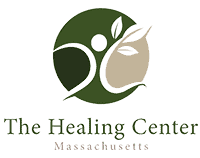Relapse prevention is a cornerstone of sustained recovery, and at The Healing Center in Stoughton, MA, our comprehensive program equips clients with the tools to maintain sobriety and thrive long-term. During your time with us, you'll actively learn to identify personal triggers—whether they are emotional, social, or environmental—and develop effective coping strategies to navigate them before they lead to substance use. Our approach combines evidence-based techniques from Cognitive Behavioral Therapy (CBT) and Dialectical Behavior Therapy (DBT) with practical skill-building in stress management, emotional regulation, and mindful living.
Recovery doesn’t stop at discharge—it’s a lifelong journey requiring ongoing support, self-awareness, and resilience. That’s why, in Stoughton, our relapse prevention services extend beyond therapy sessions. We provide individualized aftercare planning, peer support groups, and continued check-ins to help you stay on track. By learning how to manage cravings, rebuild a balanced life, and lean on community resources, clients leave with a strong foundation for enduring sobriety and a renewed sense of hope.
Understanding Relapse
Relapse is a common and often misunderstood part of the recovery journey. It refers to the return to substance use after a period of abstinence and can occur at any stage of recovery. While it may feel discouraging, relapse does not mean failure—it is often a sign that additional support or adjustments to the treatment plan are needed. Addiction is a chronic, relapsing condition influenced by changes in brain chemistry, behavioral patterns, and emotional responses. Just like other chronic illnesses such as diabetes or heart disease, managing addiction may involve setbacks that can be overcome with the right strategies and support.
Relapse typically happens in stages, beginning with emotional relapse, where individuals may isolate themselves, bottle up emotions, or neglect self-care. This can progress to mental relapse, in which internal struggles arise—thoughts about using again, fantasizing about past substance use, or bargaining. If these stages are not recognized and addressed, they may lead to physical relapse, where the individual resumes using drugs or alcohol. Understanding these stages helps individuals and their support networks intervene early, potentially preventing a full relapse and keeping recovery on track.
Education and awareness are powerful tools in relapse prevention. When individuals learn to identify personal triggers, manage stress, and replace unhealthy behaviors with healthy coping mechanisms, they strengthen their resilience in recovery. Support systems—like ongoing therapy, peer groups, and structured aftercare—also play a critical role in maintaining long-term sobriety. At The Healing Center in Stoughton, MA, we emphasize relapse education as part of every treatment plan, empowering our clients to understand their challenges and approach setbacks as opportunities for growth, not defeat


How Common Are Relapses in Addiction Recovery?
Relapse is a common part of the addiction recovery process, affecting a significant number of individuals working toward long-term sobriety. According to the National Institute on Drug Abuse (NIDA), relapse rates for substance use disorders are estimated to be between 40% and 60%, which is comparable to relapse rates for other chronic conditions like diabetes, asthma, or hypertension. These statistics highlight that while relapse is a serious concern, it is also a normal and often expected part of managing a chronic condition.
Many factors can contribute to relapse, including stress, exposure to triggers, co-occurring mental health disorders, lack of social support, and insufficient coping mechanisms. The early stages of recovery are particularly vulnerable times, as individuals may still be learning to navigate life without relying on substances. Emotional and psychological triggers—such as trauma, grief, or unresolved anxiety—can make it more difficult to maintain abstinence, especially without a solid relapse prevention plan in place.
The good news is that relapse can be prevented and managed with the right tools and support. Comprehensive treatment programs that include therapy, medication-assisted treatment (MAT), aftercare planning, and ongoing support networks significantly reduce the risk of relapse. Education about warning signs, emotional regulation, and healthy lifestyle changes are also critical components of long-term success. At The Healing Center in Stoughton, MA, we empower individuals with the knowledge and resources they need to understand and overcome relapse, helping them stay on the path to lasting recovery.
Request a Confidential Callback

Signs & Symptoms of Relapses
Relapse doesn’t happen suddenly—it usually develops in stages, often starting with subtle emotional and behavioral changes before leading to physical substance use. Recognizing the early warning signs of relapse can help individuals take proactive steps to prevent a full return to drug or alcohol use. These signs may vary from person to person but generally fall into three stages: emotional relapse, mental relapse, and physical relapse.
Common Signs of an Impending Relapse:
Emotional Relapse
- Bottling up emotions
- Isolating from support systems
- Poor sleeping or eating habits
- Skipping meetings or therapy sessions
- Loss of interest in self-care or recovery routines
Mental Relapse
- Romanticizing past substance use
- Thinking about or planning how to use again
- Lying or becoming secretive
- Bargaining (e.g., “Just one drink won’t hurt”)
- Craving substances or feeling drawn to old environments or people
Physical Relapse
- Returning to drug or alcohol use
- Loss of control over usage
- Concealing the relapse from loved ones
Recognizing these symptoms early—and reaching out for support—can help stop relapse in its tracks. At The Healing Center in Stoughton, MA, our relapse prevention programming teaches clients how to identify these signs, build coping strategies, and stay engaged in their recovery journey. We focus on helping individuals develop personalized relapse prevention plans that address their unique triggers and challenges. With ongoing therapy, peer support, and aftercare planning, we provide the tools needed to maintain long-term sobriety and navigate life with confidence.
Preventing A Return to Addiction Through Relapse Prevention in Stoughton, MA
Preventing relapse involves more than just staying away from substances—it requires ongoing self-awareness, healthy coping strategies, and a strong support system. One of the most effective ways to prevent relapse is by developing a personalized relapse prevention plan. This plan should include identifying personal triggers (such as stress, certain people or places, or emotional states), recognizing early warning signs of relapse, and outlining specific steps to take when those triggers arise. Regular participation in therapy, whether individual or group-based, also plays a key role in maintaining recovery and reinforcing healthy behavior patterns.
Building a structured and supportive daily routine is another essential component of relapse prevention. This includes prioritizing self-care, engaging in regular physical activity, maintaining a balanced diet, and getting enough sleep. Emotional regulation is just as important—practicing mindfulness, journaling, or using techniques from Cognitive Behavioral Therapy (CBT) can help manage cravings and negative thoughts. Staying connected to a sober support network, such as 12-step meetings, alumni programs, or sober friends and mentors, provides accountability and encouragement through difficult moments.
Finally, ongoing education and open communication are critical. Understanding the nature of addiction and relapse empowers individuals to take charge of their recovery, while being honest with oneself and others creates space for help before a full relapse occurs. At The Healing Center in Stoughton, MA, we equip our clients with the knowledge, tools, and support they need to stay grounded in their recovery—helping them not only avoid relapse but thrive in a substance-free life.


What Your Relapse Prevention Plan Should Include
A well-structured relapse prevention plan is a vital tool in maintaining long-term sobriety. It serves as a personalized roadmap for recognizing early warning signs, managing triggers, and staying grounded in recovery. While every plan should be tailored to the individual’s unique needs and experiences, there are several core components that every effective relapse prevention plan should include.
1. Identification of Triggers
List the specific people, places, emotions, or situations that may lead to cravings or substance use. Common triggers include stress, social isolation, certain environments, or unresolved trauma.
2. Warning Signs of Relapse
Recognize the early mental, emotional, and behavioral signs that might indicate a relapse is approaching—such as changes in mood, skipping meetings, irritability, or cravings.
3. Coping Strategies
Include a variety of healthy techniques to manage stress and emotions, such as mindfulness, exercise, journaling, breathing techniques, or creative outlets like art or music.
4. Support System
List trusted people you can turn to for support—including therapists, sponsors, sober friends, or family members—along with their contact information. This helps ensure immediate access to help when needed.
5. Daily Routine & Structure
A consistent routine promotes stability. Incorporate recovery activities such as meetings, therapy sessions, work, hobbies, and self-care practices into your daily schedule.
6. Emergency Plan for High-Risk Situations
Have a clear plan for what to do if cravings become overwhelming or if you’re in a high-risk environment. This might include leaving the situation, calling a support person, or going to a safe space.
7. Goals & Motivation
Keep a list of your short- and long-term recovery goals, along with reasons why you chose sobriety. This serves as a powerful reminder during difficult moments.
At The Healing Center in Stoughton, MA, our team works closely with clients to develop detailed, personalized relapse prevention plans that evolve throughout their recovery journey. By building this strong foundation, individuals gain the confidence and tools they need to navigate challenges and stay committed to a sober, fulfilling life.
The Healing Center’s Relapse Prevention in Stoughton, MA
If you or a loved one is navigating the path to lasting recovery, The Healing Center’s Relapse Prevention Program in Stoughton, MA offers the tools, support, and guidance needed to stay on track. Our evidence-based approach helps individuals identify triggers, develop personalized coping strategies, and build a strong foundation for long-term sobriety. Contact us today to learn how our expert team can support your recovery journey and help you maintain a healthier, substance-free life.

